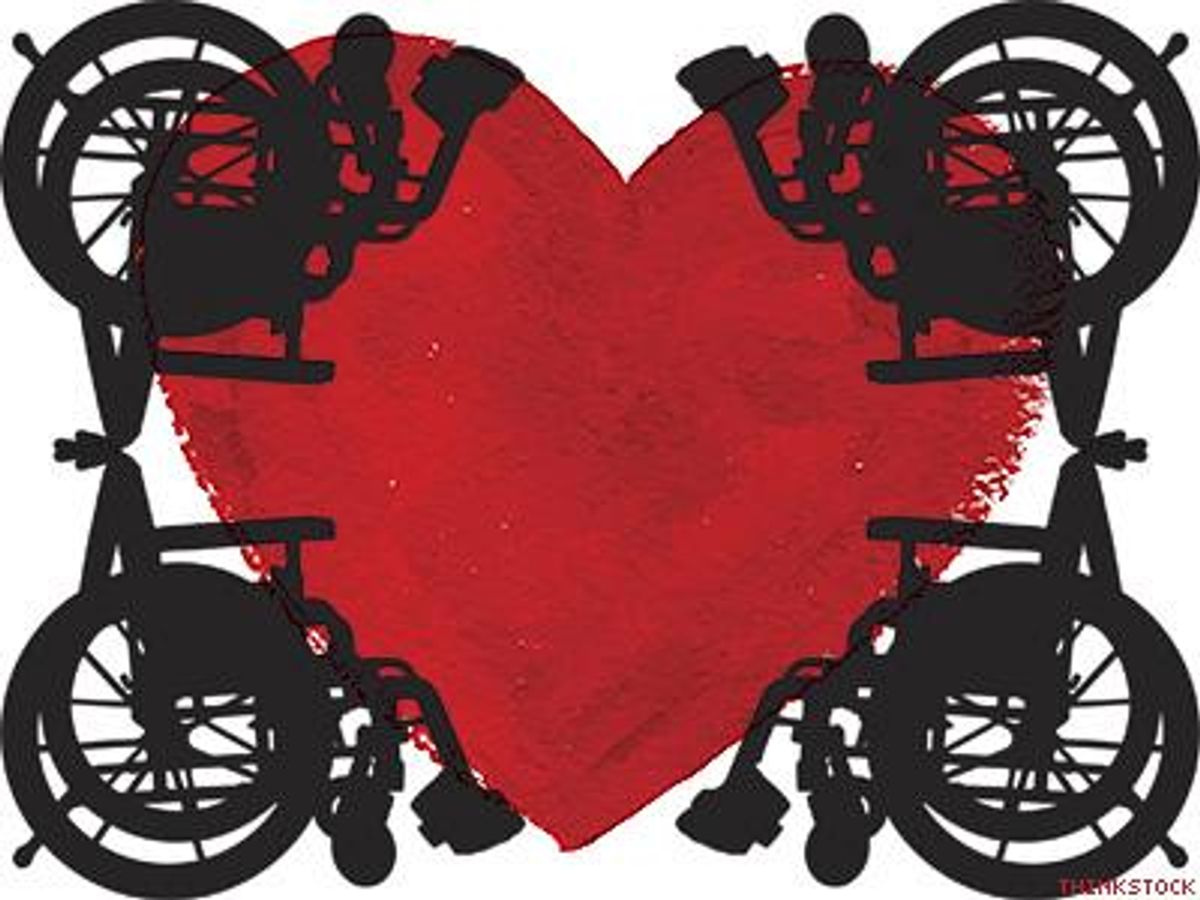If you are a man looking for sex with another man nowadays, it's almost as easy as ordering a pizza. Go online, select your preferences, agree to a place to meet and faster than you could finish your order, piping hot penis is at the door.
As queer men, we have been sexualized to believe that our sex should be quick, easy, and abundant. It is ours for the taking, anytime and anywhere. For a queer man living with a physical disability, the anatomy and trajectory of the sexual experience plays out a little bit differently.
When I am online and someone actually agrees to come over and engage sexually with me, it is like winning the lottery. You know those commercials showing people doing cartwheels in the supermarket because they have just won the millions? Yeah, this is pretty much my reaction every time someone wants to be with me intimately. It is a moment that I must taste, touch, and devour down to its marrow -- knowing that it may not come around again for a while. I can access my sexuality, and I can finally be "one of the boys."
As he takes off my shirt, revealing my misshapen body that defies everything a gay man is supposed to be, and softly traces the nape of my neck with his hands, I fall into it with reckless abandon. (I know, for just a split second, you thought you were reading a romance novel, right?) I am not being touched out of a perfunctory need to be cleaned, washed, and uniformly tended to like an object. He is here because he wants to be, and his touching me is an exercise in exploration and desire. This time is all ours -- it is not controlled, regulated, or monitored by care workers or attendants. I am completely, wholly myself, and it is wonderful.
When you are getting into bed with a partner, it is all part of the dance -- it is a fumbling waltz full of flirting, finesse, and connection (or at least that's what every romantic comedy would have us believe). Imagine having to ask your partner to place you in bed. Right then, my disability comes completely into focus, and I am all too aware of my differences (read: I am praying that this guy doesn't drop me). But our bodies come together, and for those brief blissful moments, my disability is my sexual capital.
It is not something to be admonished, scorned, or feared, but celebrated and thoroughly enjoyed for all that it is. My scissor legs, scarred back, and spastic hands only add to my amazing repertoire, so rarely experienced by other men. I am learning to love myself while being with him, realizing as we play out the scene, I have value in this arena that no one else can offer him.
As quickly as the moment started, our bodies disentangle from their nest, and the bliss starts to fade. I am brought back to reality, my body full of disability again, staring at him as he easily glides across the floor picking up clothing thrown there only minutes before. In this moment, I am the most vulnerable with him because I need his help. In all the Harlequin romance novels ever written, never once do any of the characters stop and say, "Do you think you could help me put my pants back on and transfer me to my chair?" In case you're wondering, I've checked -- there is absolutely no way to maintain your sexual prowess when asking this question.
Ultimately, the hookup/sexual encounter for the Queer Person With Disabilities can be best described as a little bit of everything all at once. Your worlds have finally melded into one. It is in this collision of queer and crippled, sex and disability that the most intimate transaction takes place for me: I am showing you who I am as a real, everyday Person With a Disability. No longer am I simply "crippled as a construct"; the reality of both my needs and wants becomes clear.
So what does sex and intimacy really mean for the Queer Person With a Disability? It is the opportunity for me to access a part of myself that is all too often locked away, pushed down, and misunderstood. It means that I am accepted and valued as a sexual creature. I am more than just a "boy in a chair." Intimacy and sexuality for the Queer Cripple is so much more than "just sex" -- and I am so thankful for that.
ANDREW MORRISON-GURZA is a disability awareness consultant working to "make disability accessible" to everyone in the queer community. You can find out more about his work and book him for opportunities to make disability accessible to you at AndrewMorrisonGurza.com


















































































